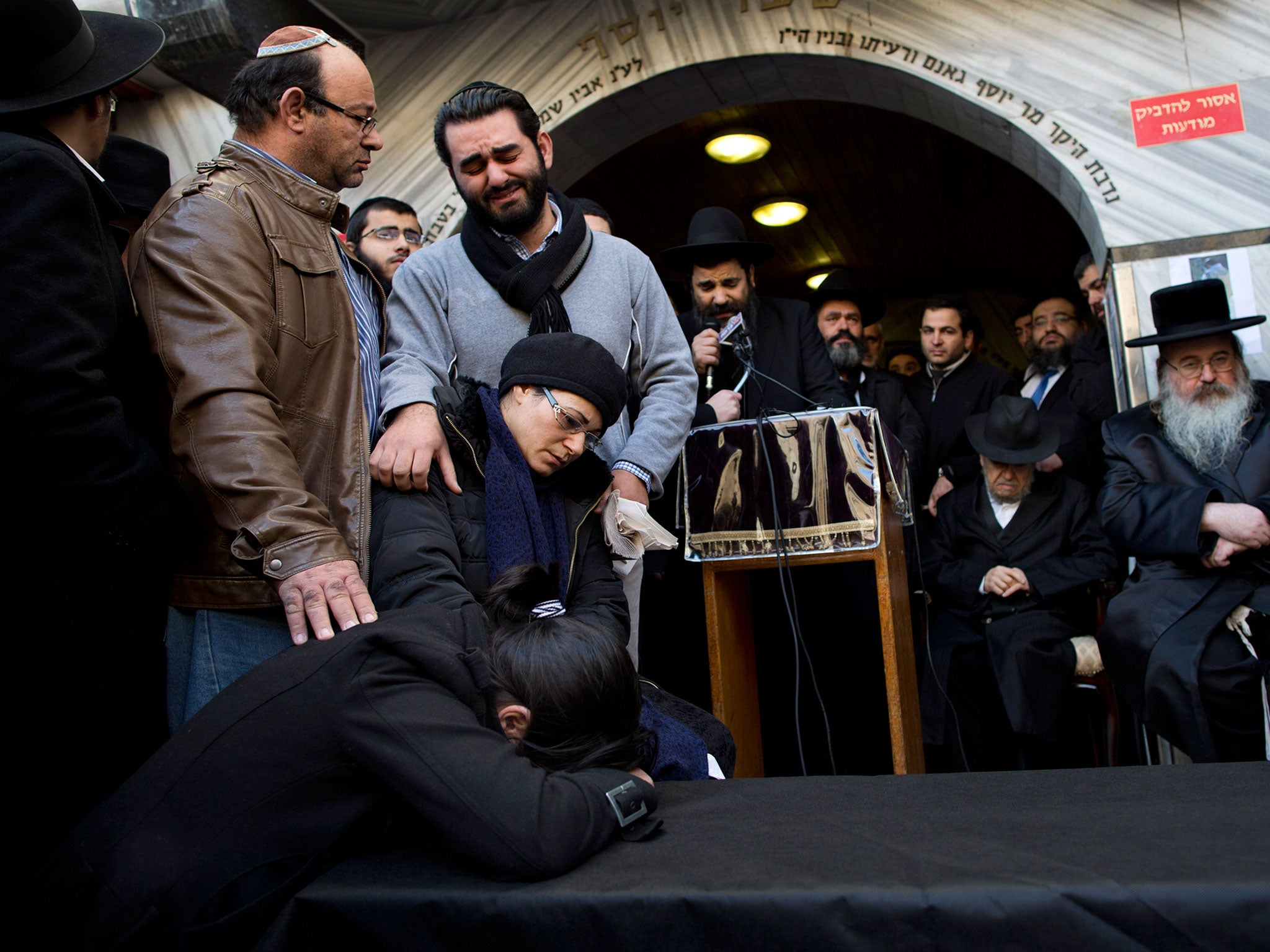Are these the darkest days for Europe’s Jews since the Holocaust?
While French Jews emigrate in record numbers, those in Britain are increasingly jittery

Today French Jews live in fear. The day after Yohan Cohen, Yoav Hattab, Philipe Braham and Francois-Michel Saada were slaughtered while doing their Shabbat shopping, Paris’ synagogues were half empty. Many congregants were too scared to show up. This week, some kosher delis and restaurants in the city’s Jewish quarter remain closed while those open are unusually empty.
Some 5,000 French police and soldiers have been posted outside Jewish schools, guarding against the next evil – perhaps a repeat of the 2012 attack on a Jewish school in Toulouse, which left three children and a teacher dead.
Or last month’s gang rape by Muslims of a 19-year-old woman in Paris, who was told she was being attacked “because you are Jewish”.
Before the term “Je suis Juif” (“I am a Jew”) was coined in defiance of the supermarket attack, “Juif, la France n’est pas a toi” (“Jew, France is not yours”) was the chant of choice. Before Parisians held pens aloft to honour free speech, fans of French anti-Semitic comedian Dieudonné made the Nazi quenelle salute.
For French Islamists, it's open season on Jews. Rather than live among mad men violently opposed to their existence, the country’s 500,000 Jews are upping sticks in record numbers. Some 7,000 left for Israel in 2014 with 10,000 predicted in 2015, bidding adieu to a country that's struggling to protect them.
One of the supermarket hostages, Yohan Dumas, is moving his family to Israel. He told Israel’s Channel 10 News: “We are not going to wait around here to die.”
British Jews are yet to encounter such intense hatred, but the malicious mood music can be heard here too.
Jews have long been part of the fabric of British society. Now, after the worst year for UK anti-Semitism on record, many are asking: do we really fit in? How long before armed soldiers stand guard outside our schools?
For the first time in living memory, the fear factor has entered our daily lives. Are we safe walking to synagogue, wearing a Star of David, shopping in kosher supermarkets and eating in kosher restaurants?
At the height of last summer’s Gaza conflict, the hashtag #HitlerWasRight trended on Twitter and Jew-hate chants echoed down London’s streets. Synagogue windows were smashed in Belfast; “Free Gaza” was daubed on a Brighton synagogue; a “Child murderers” sign was stuck on a synagogue door in Surrey. Some 302 anti-Semitic incidents were reported in July – a yearly rise of 400 percent.
Last month Danny Cohen, the BBC’s head of television, admitted he’s never felt so uncomfortable being a Jew in the UK, claiming recent events have forced him to question the long-term future of the community.
A YouGov poll published today will add to his gloom.
It claims more than half of British Jews think anti-Semitism now echoes the 1930s. Chillingly, 58 percent fear they may have no long-term future in Europe.
The survey was commissioned by the Campaign Against Antisemitism, which warns the UK has reached “a tipping point: unless anti-Semitism is met with zero tolerance, it will continue to grow and British Jews may increasingly question their place in their own country”.
British Jews are jittery, and rightly so. The Paris attacks were another reminder that their religion tops the Islamist hit list. But the threat level here does not compare. Mercifully few British Jews experience anything they'd class as an affront to their identity. By and large, in their personal and professional lives, religion is simply not an issue.
Israeli Prime Minister Benjamin Netanyahu may have invited us to move to Israel to escape the “rising tide of anti-Semitism”, but Britain in 2015 remains a safe place for Jews to live. There’s no need to pack our bags and flee. But there’s also no reason not to be vigilant. None of us know what the future holds.
Anti-Semitism is an evil many would like to believe was consigned to the darkest days of the last century. But its reputation as the oldest hatred is hard won. It will be hard lost too.
Join our commenting forum
Join thought-provoking conversations, follow other Independent readers and see their replies
Comments